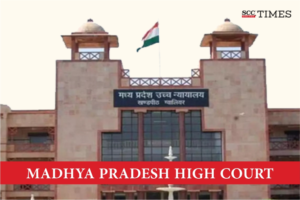Madhya Pradesh High Court: In a writ petition filed under Article 226 of the Constitution of India seeking a writ of mandamus directing the respondents to acquire the petitioner’s land pursuant to a notification dated 06-09-022 under the Coal Bearing Areas (Acquisition & Development) Act, 1957 (the Act), a single-judge bench of G.S. Ahluwalia, J., held that the petitioner’s land was lawfully excluded from acquisition under the Act due to legal and regulatory restrictions. The Court dismissed the petition on not finding any grounds for interference in the acquisition process.
Brief Facts
In the instant matter, a notification was issued in 2017 under Sections 4 and 7 of the Act for acquiring 1367 hectares of land. However, a final notification under Section 9 was not issued. In 2020, a new notification under Section 4 was issued, reducing the area to be acquired, thereby excluding the petitioner’s land. The petitioner, who owns a hotel on the excluded land, filed the present writ petition seeking a writ of mandamus from court to direct the respondents to acquire the petitioner’s land pursuant to a notification dated 06.09.2022 under the Act.
Parties’ Contentions
The petitioner argued that the exclusion of their land from acquisition would make the land valueless and could lead to the collapse of the building due to nearby coal mining activities. The petitioner also contended that respondent’s exclusion of their land was arbitrary, thereby violating Articles 14 and 19 of the Constitution of India, and sought for the land to be included in the acquisition. However, the respondents countered that the acquisition was based on expert reports and was limited by regulations such as the Coal Mines Regulations, 2017, which prohibit the acquisition of land within 45 meters of a railway line or highway. The respondents also argued that the petitioner’s claims were based on misapprehensions and that no legal or constitutional rights were violated.
Moot Point
Whether the exclusion of the petitioner’s land from the acquisition violates their fundamental rights under Articles 14 and 19 of the Constitution?
Whether the exclusion of land can be legally challenged when the final notification under Section 9 of the Act has not been challenged?
Court’s Analysis
The Court noted that the petitioner’s claim that the entire surrounding area was acquired was incorrect, as the petitioner’s land was situated between a railway line and the buildings of Northern Coalfields Limited (NCL). The Court noted that the petitioner failed to demonstrate any violation of fundamental or constitutional rights due to such exclusion. The Court held that the exclusion of the petitioner’s land from the acquisition was justified based on expert recommendations and legal restrictions, including Regulation 119, which prohibits acquiring land within 45 meters of a railway or highway.
“…where the acquisition of a land within the radius of 45 meters from Railway line as well as National Highway is prohibited, even on that ground, this Court cannot compel the respondents to acquire the land.”
The Court also highlighted that the petitioner did not challenge the final notification under Section 9 of the Act. The Court held that there was no legal basis to compel the respondents to acquire the petitioner’s land, as it was neither legally nor financially viable.
Court’s Decision
The Court dismissed the petition and held that no interference was warranted as no rights of the petitioner had been violated and the exclusion of the land from the acquisition was lawful.
[Rachana Shrivastava v. Union of India, 2024 SCC OnLine MP 5179, Decided on -07-2024]
*Judgment by Justice G.S. Ahluwalia
Advocates who appeared in this case :
Ashish Shrivastava, Senior Advocate with Vinod Mishra, Counsel for the Petitioner
Pushpendra Yadav, Deputy Solicitor General, Counsel for the Respondents/Union of India
Swapnil Ganguly, Deputy Advocate General, Counsel for the Respondents/State
Greeshm Jain, Counsel for the Respondents 4 and 5

